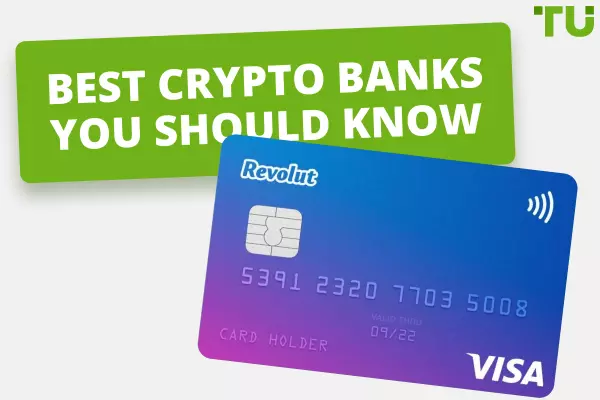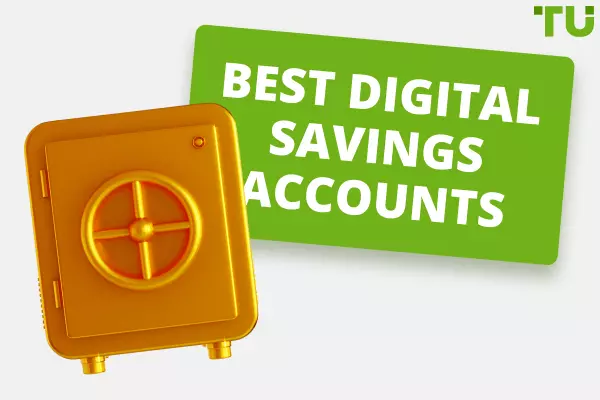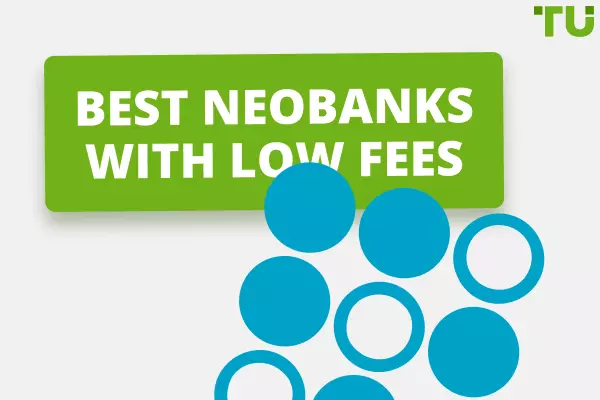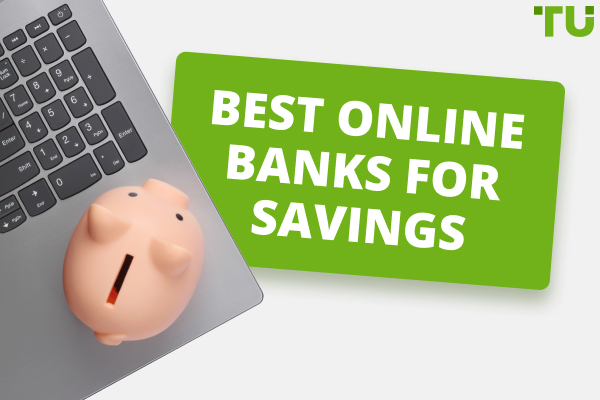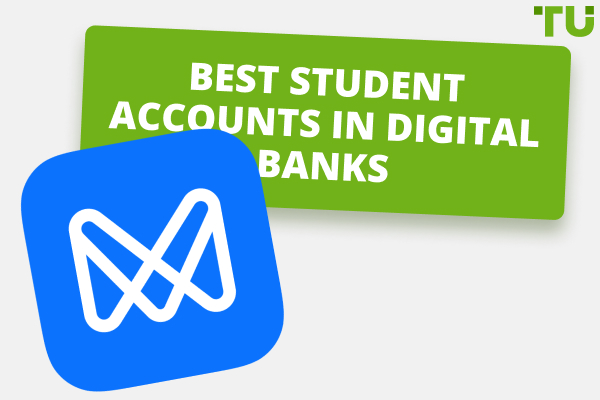Best internet banks with the lowest fees
The service sector is gradually moving to the web and the banking sector is no exception. Traditional banks have been developing online banking services for a long time, but for the last few years, they have been forced to compete with digital platforms represented by neobanks. Neobanks began to develop actively after 2014-16, when financial regulators recognized the strengths of this area and developed an applicable legislative foundation.
From this review you will learn:
What are internet banks and their types?
What functions are performed by neobanks?
The pros and cons of neobanks.
How to choose an internet bank for long-term cooperation.
How to become a digital bank client.
In this article, you will find brief descriptions of the best digital banking platforms, how to get acquainted with their product range, as well as their pros and cons.
Start Working with Digital Banks Now with the Wise Bank!What are internet banks
Internet banks (digital banks/neobanks) are banks that provide financial services via the internet. Instead of collecting a bunch of documents for verification or for applying for a loan, visiting a physical bank, and waiting in line, the user registers on the electronic platform and, after virtual verification, orders the needed service, such as debit card registration, lending, and so on. All this can be accomplished in just a few clicks. Digital banks have access to credit reference bureaus and use an automated mechanism for assessing the creditworthiness of clients. In this way, the entire process takes place quickly and with minimal participation from the client. This is how internet banks win over traditional banks.
Advantages of internet banks in comparison with internet banking:
Minimal administrative expenses. For the user, the internet bank is a website with a user account. The internet bank does not bear the cost of renting an office or maintaining fixed assets, so it incurs minimum document management costs (all papers are prepared in electronic form). Therefore, they can offer lower fees than traditional banks.
The freedom to manage your funds. An internet bank client can manage their account at any moment from almost anywhere in the world. The platform's services are available online with a few clicks. On top of that, the support service does not have a fixed regional location.
Comfort for the client. The user works with the account at any time convenient for them. There is no queue or conflicts of human personalities, just fast processing of information and transactions.
Users frequently inquire, "How do I deposit or withdraw money if the bank only exists on the web?" The partners of internet banks are payment systems and traditional banks, where any transaction can be carried out.
Cons of internet banks:
A limited number of banking products. Most neobanks provide only payment products such as the issuance and maintenance of debit cards. Universal banks that offer a suite of products, including those for businesses, are less common.
Low regional coverage. Internet banks can perform almost any international payment thanks to partnerships with payment systems. However, there are limitations for residents. For instance, CIT bank and SoFi bank only allow US residents to register.
The main impediment to the growth of internet banking is skepticism among the middle and older generations. The fact that the bank only exists on the internet and its website may be down at any time make users feel insecure. Therefore, leading digital platforms receive licenses from regulators and strive to be as transparent as possible. A prerequisite for licensed platforms is the insurance of client money in the event of a force majeure.
Best Crypto-Friendly Banks You Should KnowTop 7 best internet banks with minimal fees
Internet banks are divided into two groups: neobanks and challenger banks. Neobanks are fully digital banks that only offer basic banking services. Although a license is not required, internet banks often have it to gain client trust. Challenger banks are large universal platforms that have been created based on the concept of traditional banks or acting as a digital division of a standard bank. Such banks must be licensed.
In this section, you will get acquainted with the best internet and challenger banks that have the best tariff offers, a diverse range of banking products, and impeccable reputations.
Revolut
Revolut is one of the fastest-growing digital banks in Europe. The platform describes itself as a "Home bank for managing your capital". The emphasis in the product line is on debit cards as well as personal budget and planning services. It is also accepted in more than 150 countries. There are also unique services that are not common for traditional banks, such as pet insurance, and investment in cryptocurrencies, stocks, or assets in commodity markets.
Pros of Revolut digital bank:
-
Free multi-currency account. Revolut allows the storage of up to 30 currencies. Fees for international transfers and conversions are minimal when compared to average market rates.
-
Savings plans. The interest rate on savings accounts can reach 1.67%, with the ability to withdraw funds without a fee at any time.
-
Payment solutions for businesses. The payment gateway to online stores, access to over-the-counter markets, salary projects.
-
The possibility of investing with a low entry barrier. Investments start from $1 (investing in stocks is available only for UK residents).
Cons of Revolut digital bank:
-
There are paid plans. If you want to get the most favorable rates on savings accounts and reduced fees, you should pay for the tariff plan. This encourages clients to make more turnover on accounts and accumulate more funds in savings accounts.
-
There is a fixed fee for certain international payment directions.
The digital bank is regulated by FCA in the UK.
Wise
Wise is one of the most popular digital banks and it is focused on domestic and international payments. The platform does not provide loans, and there is no interest rate on deposits. On the other hand, Wise lets you transfer money faster than any other platform, almost anywhere globally, with a minimum fee. To date, the platform has more than 10 million users in 170 countries. The platform is licensed by the UK regulatory agency, the FCA.
Pros of the Wise digital bank:
-
Worldwide presence and partnerships with many banks. Using the payment system app, you can transfer money to almost any country. Also, thanks to the partnership with national banks and payment systems, the recipient can withdraw money with a minimum fee and without intermediaries.
-
Low fees. The calculator shows the final amount for the recipient at the online rate, taking into account all fees, which adds to transparency.
-
Functional capabilities. The system has a multi-currency wallet where you can store funds and make internal transfers in over 50 currencies.
-
High level of e-wallet protection. Throughout the system's existence, no client money has been lost due to hacking caused by Wise’s fault.
Cons of the Wise digital bank:
-
There are no loan products;
-
Slow transfers to some countries. A money transfer to certain countries may take up to 3-4 days, and the system warns you about this when you fill out the transfer details.
The platform works with conventional banks worldwide. It can be found among partners of such systems as Visa, MasterCard, and Western Union.
CIT Bank
CIT Bank exists online only and is focused on the provision of capital accumulation services. The platform offers a dedicated range of savings accounts with a flexible tariff schedule that is suitable for various client categories. Loan products are limited to mortgages.
Pros of the CIT digital bank:
-
Reliability. State regulation and participation in the FDIC's federal compensation scheme.
-
No fees or debit card maintenance fees. Multilevel interest rates on savings accounts, refund of fees when withdrawing money from ATMs in the USA.
Cons of the CIT digital bank:
-
Registration is only available to residents of the USA.
The main category of clients is people who rarely travel outside the United States and want to have access to their deposits at any time.
Bunq
Bunq is a relatively young online bank, describing itself as a platform for everyday settlements and capital accumulation. The emphasis is placed on the possibility of storing money in 16 currencies at a 0.27% interest rate. MasterCard and Wise are partnered payment networks.
Pros of Bunq digital bank:
-
Flexible pricing. The bank offers eight plans: four for retail clients and four for businesses. Three retail plans with advanced features have a fixed monthly fee;
-
The bank is licensed by the Central Bank of the Netherlands (De Nederlandsche Bank).
-
The ability to withdraw money at any time. This feature is available notwithstanding tariff plans.
-
Investment products. Two tariff plans for retail clients provide the opportunity to invest in stocks.
Cons of the Bunq digital bank:
-
Loan programs are not provided.
-
Premium plans are expensive.
At the moment, verification is only available to residents of a few countries, but the platform intends to expand its coverage in the future.
Monzo
Monzo is one of the first neobanks in the UK to be granted an FCA license and it services over 6 million clients. The platform is a payment system with a basic suite of debit card options. There are several types of accounts on which the tariff schedule depends. Domestic and international payments and short-term lending are the main types of services.
Pros of the Monzo digital bank:
-
Low fees. Due to the partnership with banks in the United States and Europe, money can be withdrawn using the Monzo card without a fee up to the account limit.
-
Savings accounts with relatively high rates are available up to 2.57% with savings on the accrued interest tax rate (ISA).
-
Business plans are offered. They provide the possibility of creating virtual cards, connecting accounting tools, etc.
Cons of the Monzo digital bank:
-
Most services are intended for UK residents only. Residents of the United States can pass verification in a limited scope.
-
The most favorable conditions are available via paid accounts.
Additionally, there is a compensation fund with an insurance amount of up to 85,000 pounds.
Monese
Monese is a young UK neobank operating in European countries. Since issuing its first debit card in 2016, the bank has grown its client base to over a million. The bank offers three types of plans, two of which have a fixed subscription fee. Paid plans offer zero fees for withdrawing money and depositing funds into the account up to the established limit, as well as a reduced conversion fee.
Pros of the Monese digital bank:
-
Instant transfers worldwide. The bank's partner is the PayPal payment system.
-
There are short-term loans available. To build a positive credit record, the bank offers a small loan of up to £600 at 28.2% per annum without checking a client’s creditworthiness.
Cons of the Monese digital bank:
-
A limited number of currencies. The wallet supports only Euro, British pounds, and Romanian leu.
-
The relatively high cost of paid plans.
The bank is ideal for those who make payments frequently without converting funds into euros or British pounds.
SoFi
SoFi Bank is an online bank founded in the USA in 2011. It is a universal digital platform that covers almost all types of traditional banking services. Here you can remotely apply for several loan types. Reduced interest rates apply for student and medical loans. There are even special loans for weddings or travel purposes. The platform also offers insurance and investment services of many types. Using the app features, you can buy shares of companies or ETFs without a fee for an amount starting from $5. There are products for large clients, like budgeting and structuring an investment portfolio. As for businesses, the platform offers loan facilities and short-term loans.
Advantages of the SoFi digital bank:
-
Favorable tariff policy. SoFi bank’s range of banking services is almost as good as many traditional banks. But thanks to digital technologies, the bank has optimized its administration and operating costs by reducing fees and interest rates for its clients.
-
MasterCard payment system credit card. It is a combination of reliability, freedom of action, and low fees. The card is accepted by many ATMs in the USA and Europe.
-
Also, there is an opportunity for additional savings. Active members of the digital bank community get discounts on trust management plans, free advice from career development specialists, etc.
-
It has a unique product range.
Cons of the SoFi digital bank:
-
Only US residents can register on the platform.
A little extra: if you are a student and want to refinance your debt with another bank, SoFi will give you $300, which can be credited to repay your debt.
A comparative table of the main parameters of digital banks.
| Digital bank | Loan rate | Credit rate | Supported currencies |
|---|---|---|---|
Revolut |
0.65%-0.7% |
6.45% |
30 currencies |
Wise |
Not applicable |
Not applicable |
54 currencies |
CIT |
From 0.1% |
0.1%-1.4% |
USD |
Banq |
The bank does not issue loans |
0.09% APY |
Euro (16 European currencies in the Easy Money plan) |
Monzo |
0-19% |
1.16%-1.50% |
GBP |
Monese |
Individual |
28.2% |
GBP, EUR, RON |
SoFi |
1.89%-22.23% |
0.90%-1.50% |
USD |
Differences between internet banks and traditional banks
The main feature of internet banks is access to the platform functions from a mobile app with just a few clicks. Internet banks refer to the startups of the FinTech segment, so many actions here are automated. Digital banks aggregate information about users from state sources based on the client's data. For example, an internet bank reviews a loan application several times faster and without the participation of the borrower. The borrower only needs to provide passport data and a tax code. The key advantages of digital banks are the speed of service and low fees.
10 Best Credit Cards - Fees and Bonuses ComparedHow to open an internet bank account and become a client
On the internet bank website, click the "Register" button. You will need the following documents for verification: a passport (driver's license, or similar official document), a tax number (social insurance number), and proof of residence. You can open an account from any country, but the bank will require proof of residence and your address. For verification, a video call may be required.
Enter your username, password, etc. Follow the instructions that will help you link your account to your email and phone number. You can also select between a private client account and a legal business account.
Then, link a debit or credit card. You can also apply for an internet bank card and deposit funds into your account through partner ATMs.
Select a tariff plan if it is provided by the platform conditions. The free plan offers limited functions.
Note that some tariff plans may require a minimum balance on the card account.
Tips for users of internet banking apps:
-
If you need to make a domestic or international transfer, first calculate the total fee. Use the calculator (if there is one) on the platform's website to estimate the amount after conversion. Check the payment systems and banks with which the bank works, and keep in mind that they may charge a fee for withdrawing fiat funds. Check out the FAQs section where you can find additional relevant information.
-
If you are interested in a debit card, then pay attention to transfer directions and minimal fees. For example, there are tourist debit cards with almost zero fees for withdrawing money abroad, cash back cards for consumer spending, and so on.
-
If you need a loan, then also check the applicable fees. Some internet banks have overdraft offers with a zero-interest grace period. However, additional fees for transactions between payment systems may be charged when refinancing.
Conclusion. Internet banks are FinTech platforms that have replaced online banking and are gradually displacing traditional regional financial institutions from the basic services market. They have an advantage because of lower fees, faster transaction processing speeds, simplified verification, and the ability to use digital banking via the app at any time. Get acquainted with new and innovative technologies. Just register on the website of the internet bank of your choice and try out how comfortable it is to receive high-quality banking services in just a few clicks!
FAQ
Why should I use internet banking services?
Internet banks provide traditional bank services such as standard payments, credit, and investment products, like debit and credit cards, overdrafts, insurance products, refinancing, mortgages, car loans, and so on. But unlike traditional banks, you can access all of these services online from anywhere globally. Internet banks save on administrative expenses because they have fewer capital expenses and a more transparent and budgetary tariff system. The partners of internet banks are often Visa, MasterCard, and Wise payment systems, which guarantee the high speed of domestic and international transfers.
How to choose an internet bank?
Focus on the required tasks. Internet banks are divided into universal and specialized types. Universal banks have a wider product line, but there may be higher fees. Specialized banks, on the other hand, may only provide payment solutions but at lower fees. Also, note that internet banks may have different fees depending on the required operation. Sending money to India, for example, may be more profitable through bank "A," while sending money to Mexico may be more profitable through bank "B."
How secure and reliable is an internet bank compared to a traditional bank?
The level of personal data protection for internet banks and traditional banks is about the same. Internet banks must maintain a good reputation, and they are constantly monitored by a financial regulator or through audit procedures. Internet banks, at their core, are the same as online banking with a similar level of security. Tools for protecting clients' money include:
Data encryption on the gateway, which is the protection traffic from the user to the platform's web servers and back using end-to-end encryption.
Two-factor authentication. At each login to the digital platform's user account, the client must enter the data to which the account is linked. Then they should enter the confirmation code sent to their email or phone. The user receives a message about each unauthorized access from other devices.
Biometric protection. Login to your user account by fingerprint via a mobile app. Not all internet banks have this option.
In the event of a potential hack, most internet banks have insurance funds that guarantee monetary compensation up to a fixed amount.
How to protect an internet bank user account from possible hacking?
The user account at an internet bank is completely secure, so hacking is only possible due to the user's error. Take the following precautions to avoid it:
Do not leave passwords for addresses linked to your account unattended.
Do not save passwords when you enter them on someone else's device.
Do not open suspicious emails or links. Viruses (keyloggers) can record keystrokes.
Do not enter data on suspicious sites, and carefully enter data in the password entry windows. There are frequent cases of phishing – copying the interface of a digital bank to obtain personal data.
If an internet bank debit or credit card is lost or an unauthorized access attempt is detected, contact support immediately to block the card and change compromised passwords.
Glossary for novice traders
-
1
Trading
Trading involves the act of buying and selling financial assets like stocks, currencies, or commodities with the intention of profiting from market price fluctuations. Traders employ various strategies, analysis techniques, and risk management practices to make informed decisions and optimize their chances of success in the financial markets.
-
2
Cryptocurrency
Cryptocurrency is a type of digital or virtual currency that relies on cryptography for security. Unlike traditional currencies issued by governments (fiat currencies), cryptocurrencies operate on decentralized networks, typically based on blockchain technology.
-
3
Investor
An investor is an individual, who invests money in an asset with the expectation that its value would appreciate in the future. The asset can be anything, including a bond, debenture, mutual fund, equity, gold, silver, exchange-traded funds (ETFs), and real-estate property.
-
4
Broker
A broker is a legal entity or individual that performs as an intermediary when making trades in the financial markets. Private investors cannot trade without a broker, since only brokers can execute trades on the exchanges.
-
5
Extra
Xetra is a German Stock Exchange trading system that the Frankfurt Stock Exchange operates. Deutsche Börse is the parent company of the Frankfurt Stock Exchange.
Team that worked on the article
Oleg Tkachenko is an economic analyst and risk manager having more than 14 years of experience in working with systemically important banks, investment companies, and analytical platforms. He has been a Traders Union analyst since 2018. His primary specialties are analysis and prediction of price tendencies in the Forex, stock, commodity, and cryptocurrency markets, as well as the development of trading strategies and individual risk management systems. He also analyzes nonstandard investing markets and studies trading psychology.
Also, Oleg became a member of the National Union of Journalists of Ukraine (membership card No. 4575, international certificate UKR4494).
Olga Shendetskaya has been a part of the Traders Union team as an author, editor and proofreader since 2017. Since 2020, Shendetskaya has been the assistant chief editor of the website of Traders Union, an international association of traders. She has over 10 years of experience of working with economic and financial texts. In the period of 2017-2020, Olga has worked as a journalist and editor of laftNews news agency, economic and financial news sections. At the moment, Olga is a part of the team of top industry experts involved in creation of educational articles in finance and investment, overseeing their writing and publication on the Traders Union website.












